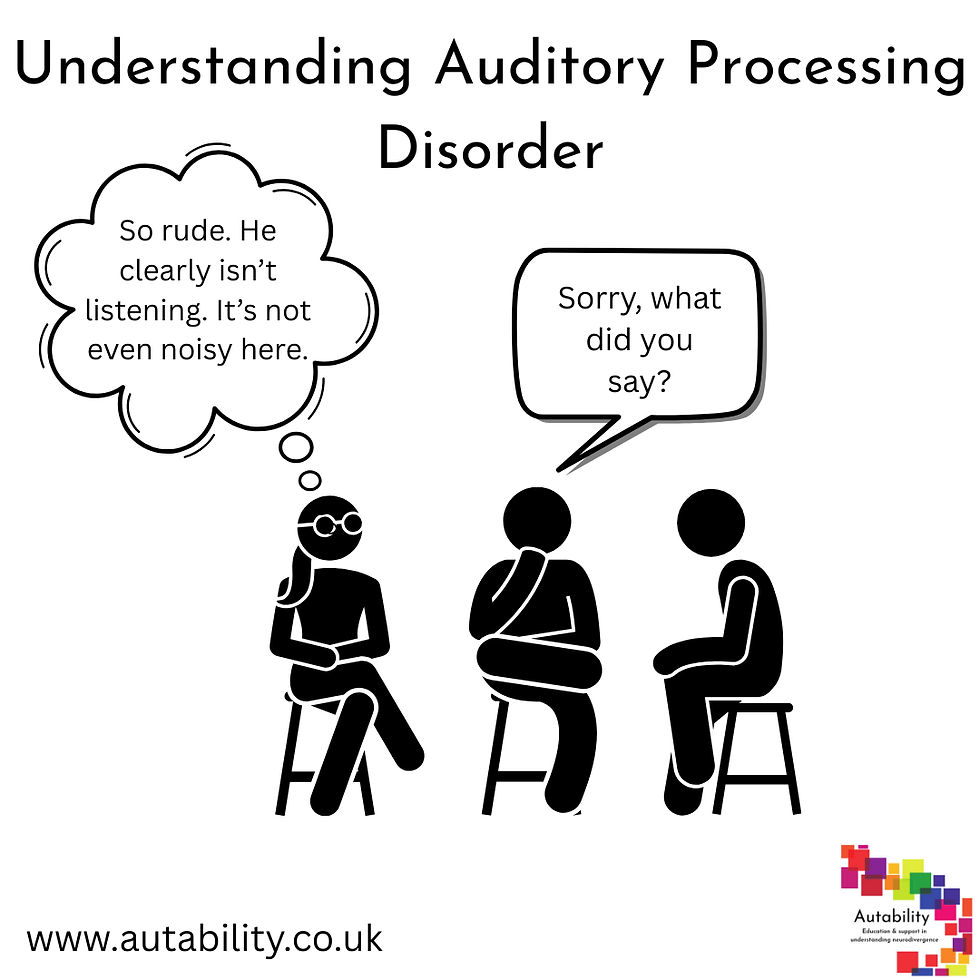What is Auditory Processing Disorder?
- Aug 14, 2025
- 1 min read
Understanding Auditory Processing Challenges in Your Autistic or ADHD Child
When your child seems to ignore you, struggles to follow directions, or becomes overwhelmed in noisy environments, auditory processing difficulties might be at play.
Many children with autism and ADHD experience challenges in how their brain interprets and makes sense of sounds, even when their hearing is perfectly normal.
Auditory processing disorder (APD) affects how the central nervous system processes auditory information. For children with autism or ADHD, these challenges often overlap with their existing neurological differences, creating a complex web of communication and learning difficulties.
Common signs include:
Difficulty following multi-step instructions.
Frequently asking "what?" even in quiet environments.
Trouble distinguishing between similar sounds.
Becoming easily distracted or overwhelmed by background noise.
Your child might excel in quiet, one-on-one conversations but struggle in group settings or noisy classrooms.
Understanding that these aren't behavioural issues or choices, but are caused by genuine neurological differences, is crucial not only for yourselves but also for friends and family. Your child isn't being rude or defiant when they don't respond to your call from across the room. Their brain might genuinely not be processing your voice clearly against the background of household sounds.
It is also important to remember that what you think of as loud or quiet environments might not be the same for your child. Sometimes the quietest sounds to you can be loud and overwhelming to your child.

.png)



Comments